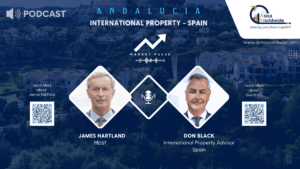Generally, tax is not a big talking point for expats for a few reasons:
Some of the locations where expats work there is no income tax; this is typically true in the Gulf. Other locations like Singapore or Hong Kong which do charge income tax, the rates are likely to be far lower than most other countries.

For expats that work in locations like the UK, Europe or US where tax is a factor often the packages which are provided take care of this. These countries also provide other valuable benefits to compensate for the tax like pensions, share schemes and often comprehensive medical and life insurance.
As a result, often expats don’t view tax as a major issue while working abroad and instead see it as something to worry about when they return home. This would however be a mistake as while working abroad there are plenty of opportunities for clients to ‘ring fence’ their assets before they return to their country of origin.
Typical mistakes made when investing while abroad:
Using an investment platform in your home country where you still pay tax on any dividends or capital gains.
Keeping significant amounts of cash in a bank in your home country and having to pay tax on the interest.
Setting up an investment platform or investments in the country where you are working without realising that this needs to be closed when you leave and you have lost the opportunity for tax planning.
The benefits of long-term tax planning and consulting a professional:
Most countries where expats return to live have special laws in place which if understood can provide the expat when they return home considerable tax benefits.
Generally, most Western, Asian and countries like Australia and New Zealand offer significant tax breaks for expats who save into certain types of structure. This includes structures like; offshore pensions, trusts and certain life assurance products.
These products are complex and can only be set up by using the services of a professional like an ‘Independent International Financial Advisor’. The benefits of these structures however are considerable if set up correctly and with professional help.
Benefits:
Significantly reduce income and capital gains tax when you start taking benefits.
These structures also protect you from creditors, bankruptcy and divorce settlements.
They can also be used for inheritance planning by ‘ring fencing’ your assets for your beneficiaries and reducing death taxes and legal fees.
Summary:
In summary these structures have been around for a long time and are tried and trusted. They are based in financially stable and secure jurisdictions offering genuine tax planning opportunities.
As more and more countries look to increase their tax take these structures offer a legitimate way to reduce your future tax obligations at a minimal cost.
Example of countries which recognise these structures:
UK, USA, Europe, Singapore, Philippines, Thailand, Australia & New Zealand.
In Europe usually more specific structures are required depending on which EU country you retire too. [Examples Portugal, Spain and Greece].
Final thoughts:
Often clients sacrifice this kind of planning as they like the current platform they have, which they can maybe view and trade online. Often, they use these platforms to trade stocks and maybe even crypto.
The good news is that you do not need to sacrifice these conveniences if you decide with your advisor that these tax planning structures are right for you.
Almost all these structures allow you to hold the trading platform you currently hold so you are not sacrificing your ability to still manage your assets and make your own investment decisions if that is your preferred choice.
Alternatively, if you would rather others make the choices for your investments you can choose to appoint an ‘investment manager’.








